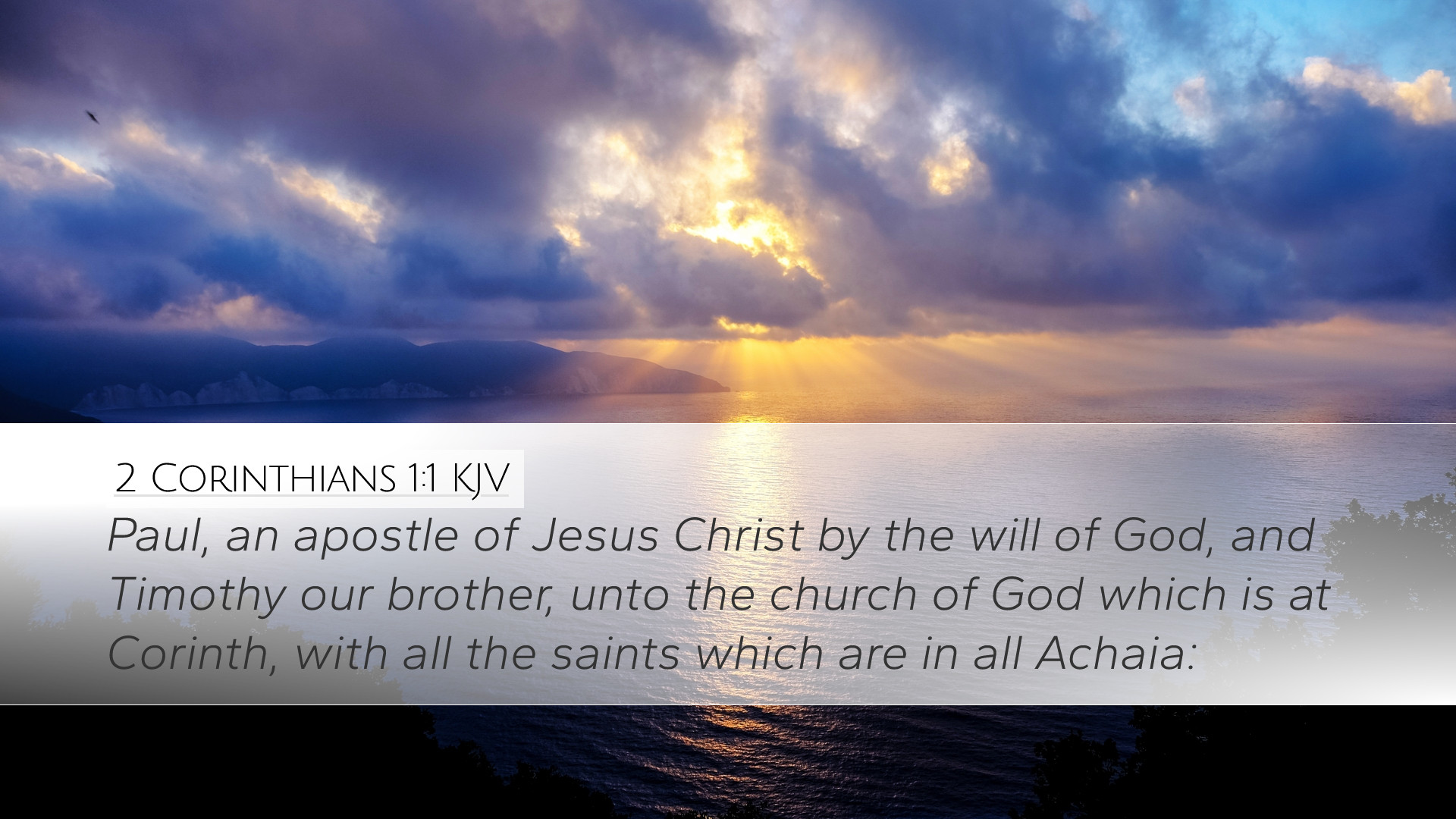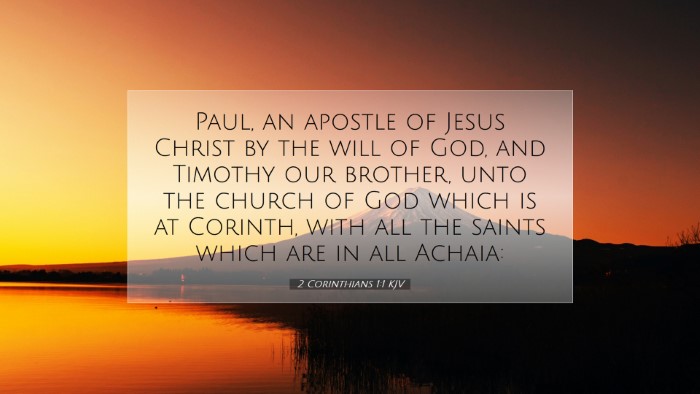Commentary on 2 Corinthians 1:1
Text of the Verse: "Paul, an apostle of Jesus Christ by the will of God, and Timothy our brother, unto the church of God which is at Corinth, with all the saints which are in all Achaia."
General Overview
This opening verse of 2 Corinthians sets the tone for the epistle, introducing the author, the recipients, and the divine authority behind the message. It highlights the apostolic authority of Paul, his association with Timothy, and establishes the intended audience—the church at Corinth and the broader community of believers in Achaia.
Authorship and Authority
Paul’s Apostolic Authority: Paul explicitly identifies himself as an apostle, emphasizing that his commission comes "by the will of God." This declaration serves to validate his authority as he addresses issues of concern within the Corinthian church.
- Matthew Henry: Points out that Paul's apostleship is not self-appointed or based on human authority, but divinely ordained. This underscores the spiritual weight of his message.
- Albert Barnes: Expands on the idea that the divine will is the foundation of true ministry. Paul’s authority is derived from God's choice, which encourages believers to heed his words with seriousness.
- Adam Clarke: Suggests that Paul's use of the term "apostle" signifies his unique role in the establishment of the early church, giving him a position of spiritual leadership and responsibility.
Co-laboring with Timothy
The Mention of Timothy: By including Timothy, Paul demonstrates the communal aspect of ministry. Timothy’s presence suggests collaboration and fellowship in the work of spreading the Gospel.
- Henry: Notes that Timothy was a beloved companion of Paul, representing the next generation of leaders. His inclusion signifies a unity of purpose in addressing the church's needs.
- Barnes: Highlights Timothy's significance as a trusted co-worker, validating the authenticity of Paul’s message. His mention may also prepare the church for Timothy's role in their spiritual growth.
- Clarke: Remarks on the father-son relationship between Paul and Timothy, indicating that their partnership is modeled on mutual respect and shared mission, vital for the health of the Corinthian church.
Addressing the Church of God
The Recipients: The letter is addressed "to the church of God which is at Corinth," revealing a profound aspect of ecclesiology—that the church belongs to God. This establishes the church's identity and purpose as divine rather than human.
- Henry: Acknowledges that the designation "church of God" highlights its sanctity and the divine ownership, which invokes a sense of responsibility and reverence among believers.
- Barnes: Points out that by referring to the church as God's, Paul emphasizes the importance of adhering to God’s will. This reinforces the notion that the church operates under divine authority.
- Clarke: Considers this phrase as a reminder of the church's mission—to embody God's will on earth. He stresses that the calling of the church is to reflect God’s glory and fulfill His purposes.
All Saints in Achaia
Expanding the Audience: The inclusion of "with all the saints which are in all Achaia" broadens the scope of the message beyond the local church in Corinth. It speaks to the interconnectedness of believers throughout the region.
- Henry: Suggests that Paul’s address to all saints unites the church under a common faith and purpose, reinforcing the concept of the universal body of Christ.
- Barnes: Highlights the significance of recognizing the wider church community, encouraging believers to see themselves as part of a larger mission and to be accountable to one another.
- Clarke: Reflects on the word “saints” as a term denoting holiness and separation for God's service, urging the Corinthians to live in a manner worthy of their calling.
Conclusion
This opening verse of 2 Corinthians serves as a rich introduction to the epistle, establishing Paul’s authority as an apostle and highlighting the communal nature of the early church. It calls the recipients to recognize their identity in Christ and the purpose they serve as a collective body. By understanding the implications of the greetings and the significance of each element, pastors, students, theologians, and Bible scholars can delve deeper into the epistle's themes and messages, applying them to their contexts and discipleship efforts.


